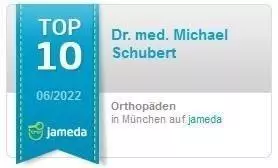An acute disc herniation (disc prolapse) is a serious condition that can be accompanied by severe pain and neurological symptoms. Prompt treatment is crucial to prevent permanent damage. This article explains in detail the typical symptoms, diagnosis, treatment options, and the risks of not treating a disc herniation.
Symptoms of an acute herniated disc
The symptoms of an acute disc herniation can vary depending on the location and severity of the prolapse:
- Severe back pain : A herniated disc often begins with sudden, stabbing pain in the lower back, which can spread to the legs.
- Neurological deficits : These include numbness, tingling, or weakness in the legs. These symptoms occur when the herniated disc presses on nerves.
- Limited mobility : Those affected often have difficulty bending down, standing up or performing certain movements.
- Incontinence : In very severe cases, bladder or bowel dysfunction may occur, requiring urgent medical attention.
Diagnosis of a herniated disc
The diagnosis of an acute disc herniation takes place in several steps:
- Anamnesis : The doctor first conducts a detailed conversation to record the symptoms and obtain information about the patient's general health.
- Physical examination : The doctor tests the patient's reflexes and mobility as well as pain sensitivity.
- Imaging procedures : In many cases, a magnetic resonance imaging (MRI) or computed tomography (CT) scan is ordered to visualize the herniated disc and determine the exact location of the damage.
Treatment options for a herniated disc
The treatment of acute disc herniation can be either conservative or surgical. The choice of treatment depends on the severity of the symptoms and the individual patient situation.
Conservative therapy
In most cases, conservative treatment is attempted first:
- Pain relief : Pain relievers such as nonsteroidal anti-inflammatory drugs (NSAIDs) can be used to relieve acute pain.
- Physiotherapy : After the acute phase, targeted physiotherapy is often recommended to strengthen the muscles and promote mobility.
- Immobilization : In some cases, temporary rest may be advisable.
Minimally invasive decompression
If conservative measures do not lead to improvement or symptoms are severe, minimally invasive decompression may be considered. This procedure includes:
- Endoscopic discectomy : This technique allows the doctor to reach the disc through small incisions in the skin and relieve pressure on the nerves by removing the excess tissue.
Advantages of minimally invasive decompression include less postoperative pain, shorter recovery time and a faster return to daily activities.
Risks of non-treatment
Failure to treat an acute herniated disc can have serious consequences:
- Chronic pain : If left untreated, pain can become chronic, which can severely impair quality of life.
- Neurological impairments : Persistent pressure on the nerves can lead to permanent neurological deficits, including numbness and muscle weakness.
- Impaired quality of life : The way of life can be significantly restricted by the reduced mobility and pain, which can also lead to psychological stress.
Common mistakes and their effects
A common misconception is that patients believe their pain can be completely relieved by rest and relaxation. While some recovery time is important, excessive inactivity can weaken muscles and delay healing. Ignoring neurological symptoms can also lead to long-term damage.
The APEX SPINE spine clinic in Munich
The Apex-Spine Spine Clinic in Munich specializes in the diagnosis and treatment of spinal disorders. The team of highly qualified specialists offers individualized care and state-of-the-art medical procedures to optimally treat acute herniated discs. With a wide range of conservative therapies and minimally invasive surgical procedures, the clinic ensures that patients become symptom-free as quickly as possible.

